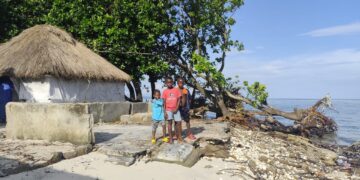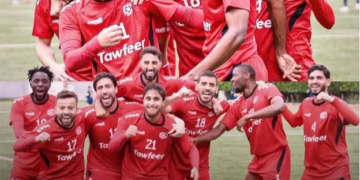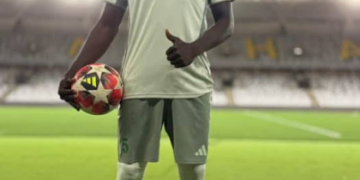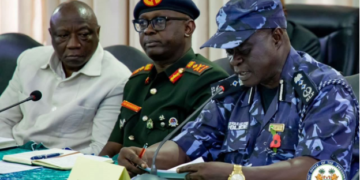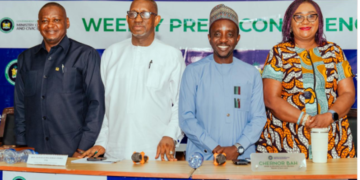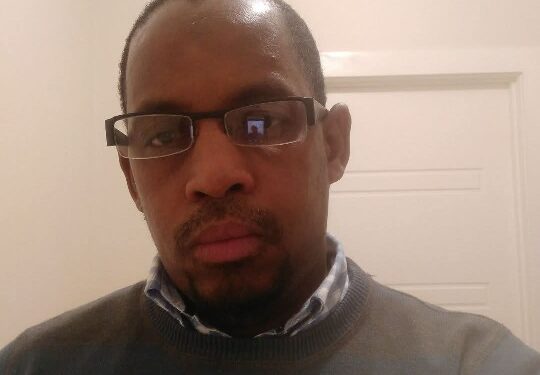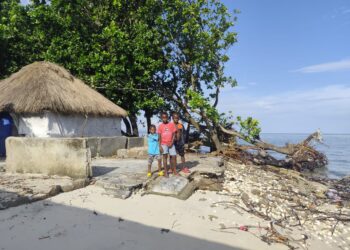By Alpha Amadu Jalloh
In Sierra Leone, politics has never been about ideas, competence, or genuine leadership. It has become an economy of survival. An invisible web ties ordinary citizens to corrupt politicians in what I call an “unspoken contract”. It is a silent agreement between the oppressed and the oppressor, a deal that no one signs but everyone upholds. This contract is what sustains bad governance, mediocrity, and moral decay. It is the unwritten rule that binds the masses to the political class, a dangerous loyalty traded for crumbs of survival.
The unspoken contract is the invisible glue that holds together a system built on lies, hypocrisy, and dependency. It begins when citizens lower their expectations of government. They start to believe that corruption is normal, that suffering is destiny, and that those in power are untouchable. Once that belief takes root, the people become participants in their own oppression. They defend politicians who exploit them because they hope to benefit from the same system one day. It is the mentality of “e go reach, we turn soon”, a toxic hope that has kept generations chained to the same rot.
In Sierra Leone, this unspoken contract is not written on paper, but it’s engraved in our social behaviour. People defend thieves because the thieves belong to their tribe, region, or political party. They turn a blind eye to injustice because it is committed by “one of us”. In doing so, they give legitimacy to the very people who exploit them. This is not ignorance. It is a deliberate choice to survive in a corrupt ecosystem.
| “People defend thieves because the thieves belong to their tribe, region, or political party. They turn a blind eye to injustice because it is committed by one of us.” |
The unspoken contract thrives on fear and favouritism. It tells civil servants to remain silent when they witness corruption because speaking out could cost them their jobs. It tells journalists to accept brown envelopes and write praise pieces instead of truth. It tells religious leaders to bless thieves at the pulpit because their congregation depends on political donations. Even teachers and youth leaders play along because the system rewards loyalty over integrity. Everyone becomes a stakeholder in silence.
Every election in Sierra Leone renews this contract. Politicians come with their charm, their deceptive promises, and their shallow philanthropy. They buy rice, share envelopes, and sponsor funerals, weddings, or mosque constructions. The poor, hungry, and desperate masses see these acts not as manipulation but as generosity. They respond with loyalty at the ballot box, giving power back to those who rob them. It is the cycle of deceit, one that thrives because both sides agree to play their roles.
| “The poor, hungry, and desperate masses see these acts not as manipulation but as generosity. They respond with loyalty at the ballot box, giving power back to those who rob them.” |
The saddest part of this unspoken contract is how it has eroded our moral conscience. People no longer see corruption as wrong. They see it as an opportunity. A government job is no longer a call to serve but a licence to steal. Contracts are no longer awarded on merit but on personal connection. Politics has become a business venture, not a platform for nation-building. The Sierra Leonean dream has been reduced to “getting a connection”, not building competence or integrity.
The unspoken contract also thrives in the diaspora. Many Sierra Leoneans abroad who criticise corruption at home are the same people who celebrate and take photos with the same corrupt politicians when they visit. They lobby for appointments, seek favours, and justify the failures of those they once condemned. The hypocrisy is staggering, and it continues to empower the corrupt few while silencing the conscience of the nation.
| “Politics has become a business venture, not a platform for nation-building. The Sierra Leonean dream has been reduced to getting a connection.” |
This unspoken contract extends beyond individuals. It has corrupted institutions. Ministries, departments, and agencies no longer operate on national interest but on political alignment. The police no longer serve the people; they serve power. The courts no longer deliver justice; they deliver judgement based on who pays or who has connections. Even anti-corruption institutions, which should be the conscience of the nation, have become political tools used to intimidate opponents and protect allies.
The danger of this silent agreement is that it normalises mediocrity. It convinces citizens that progress is impossible without corruption. It breeds a generation that no longer dreams of excellence but of shortcuts. The youth, who should be the moral and intellectual engine of the nation, are instead learning how to survive within this crooked system. They become campaigners, thugs, praise singers, and social media defenders of politicians, hoping to get a contract, a job, or a visa.
| “The danger of this silent agreement is that it normalises mediocrity. It convinces citizens that progress is impossible without corruption.” |
But every contract can be broken. The unspoken contract survives because we, the people, keep it alive. It thrives on our silence, our complicity, and our fear. It is time we rewrite this social contract, not with ink, but with courage. The courage to say no to lies, no to tribal politics, and no to the glorification of thieves. The courage to believe that Sierra Leone can do better, that leadership is a duty, not a reward.
We need to restore moral consciousness in our society. Schools must teach civic values, not just arithmetic. Religious institutions must speak truth to power, not sing praises to politicians. Civil servants must be trained and protected to act ethically. The media must reject bribes and report truthfully, no matter the cost. Citizens must stop selling their votes and start demanding accountability.
Breaking the unspoken contract also requires personal transformation. Every Sierra Leonean must ask themselves: what role do I play in maintaining this system? Do I accept favours that compromise my values? Do I keep silent when wrong is done because it benefits me? Do I contribute to tribalism or gossip that divides the nation? The answers to these questions determine whether we remain slaves to this silent pact or free ourselves from it.
The unspoken contract is not a curse. It is a choice. A collective decision to exchange dignity for convenience, truth for survival, and justice for loyalty. But as history teaches us, every corrupt system eventually collapses under the weight of its own lies. Sierra Leone will one day rise from this moral decay, but only when the people decide that silence is no longer an option and complicity is no longer survival.
Until then, we live under the tyranny of our own consent, bound by an unspoken contract we never signed but continue to honour every day.


